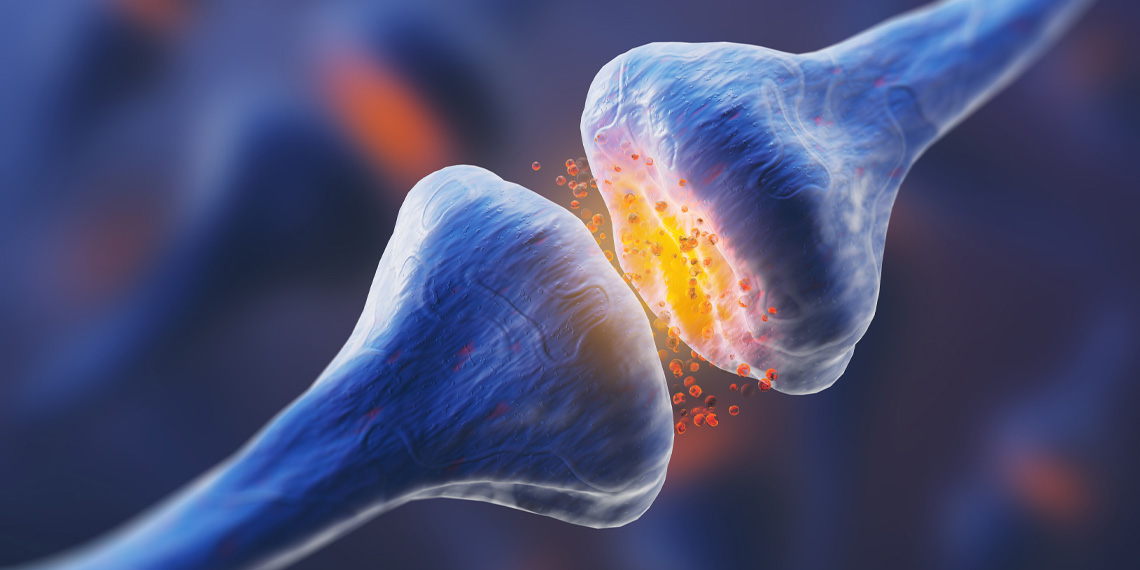A recent study published in the journal Translational Psychiatry has uncovered that a single dose of a common antidepressant, specifically a selective serotonin reuptake inhibitor, can change how the brain processes internal bodily sensations. This effect is particularly evident when individuals are anxious, revealing a nuanced interaction between serotonin, interoception (the sensing of internal bodily states), and anxiety.
The researchers aimed to understand how serotonin, a key neurotransmitter in the brain, influences interoception. While serotonin’s role in modulating sensory processing like vision and hearing is well-established, its effect on interoception, especially regarding ordinary internal sensations such as heartbeats and stomach activity, was less clear.
“Not a whole lot was known about how the brain regulates its use of sensory information coming from inside the body. Likewise, we didn’t know why serotonergic antidepressants change our mood, despite millions of people taking them every day,” said study author Dan Campbell-Meiklejohn (@DrDanielCM), a senior lecturer at the University of Sussex.
“Independently, serotonin and interoception have been associated with the same mental health disorders, brain activations and behaviors. So, a test of whether serotonin influences interoception seemed like a good place to start to fill the gaps in these two stories.”
The study involved 31 healthy participants aged 18 to 35. They underwent a double-blind, placebo-controlled, randomized cross-over experiment. Each participant was tested twice: once after receiving a single dose of the selective serotonin reuptake inhibitor citalopram (20 mg) and once after receiving a placebo, with sessions spaced at least a week apart.
Participants performed a visceral interoceptive awareness (VIA) task, which involved focusing on sensations from their heart and stomach while their brain activity was monitored using functional magnetic resonance imaging (fMRI). The task also included a control condition where participants focused on visual stimuli. This design allowed the researchers to isolate the brain’s response to interoceptive sensations and compare it to exteroceptive (external sensory) processing.
The results showed that a single dose of citalopram significantly reduced the neural response to interoceptive sensations. The researchers observed that the increased levels of serotonin reduced neural activity in the amygdala and posterior insular cortex. These regions are critical for processing sensory and emotional information.
The reduction in neural response suggests that serotonin has a tempering effect on the brain’s processing of internal bodily sensations. This finding is notable because it extends the known effects of serotonin from exteroceptive sensory processing, such as vision and hearing, to interoceptive processing.
An intriguing aspect of the study is the state-dependent nature of serotonin’s effects. The researchers found that the relationship between anxiety and interoception was altered by citalopram. Under placebo conditions, higher anxiety levels were associated with increased neural responses in the anterior insula and orbitofrontal cortex during heart-focused tasks.
However, this relationship was significantly flattened when participants were given citalopram. This suggests that serotonin not only modulates interoception but does so in a manner that is influenced by the individual’s anxiety levels.
The findings indicate that “serotonin changes the way our brain processes sensations from our body, including changes in the processing of heart sensation when we are feeling anxious,” Campbell-Meiklejohn told PsyPost.
The researchers also found that citalopram’s effect on the processing of stomach sensations was a strong predictor of changes in anxiety. Participants who experienced a more significant reduction in neural response to stomach sensations also showed variations in their anxiety levels.
“It was surprising that the effect of the SSRI on the processing of stomach sensation was the best predictor of SSRI effects on anxiety (which can go up or down depending in the person, in the short term),” Campbell-Meiklejohn said. “It’s a preliminary finding, but it goes to show ‘gut feelings’ are not just an expression.”
However, the study only examined the effects of a single dose of citalopram, whereas real-world treatment involves long-term use. This raises questions about the long-term effects of serotonin modulation on interoception. Future research could explore the chronic effects of selective serotonin reuptake inhibitors and include more diverse participant groups.
“The effects of a single dose in healthy volunteers are not always predictive of what will happen to a patient that is taking them for weeks,” Campbell-Meiklejohn said. “We can’t infer what this means for patients taking SSRI treatments without further research.”
Investigating how these findings apply to patients with anxiety disorders and testing other antidepressants could provide deeper insights into the mechanisms and therapeutic potential of serotonin modulation in treating mental health conditions.
“I want to know if effects of serotonin on interoception are the mechanism for therapeutic effects of SSRIs in anxiety and if they explain other effects of serotonin transmission on things like impulsivity and aggression,” Campbell-Meiklejohn explained.
The study, “General and anxiety-linked influences of acute serotonin reuptake inhibition on neural responses associated with attended visceral sensation,” was authored by James J. A. Livermore, Lina I. Skora, Kristian Adamatzky, Sarah N. Garfinkel, Hugo D. Critchley, and Daniel Campbell-Meiklejohn.




